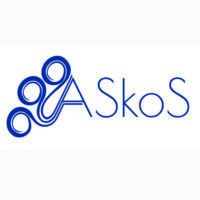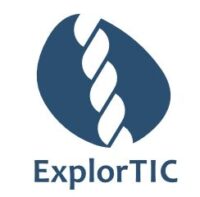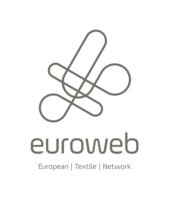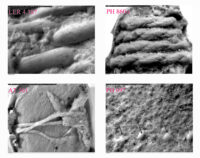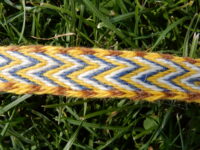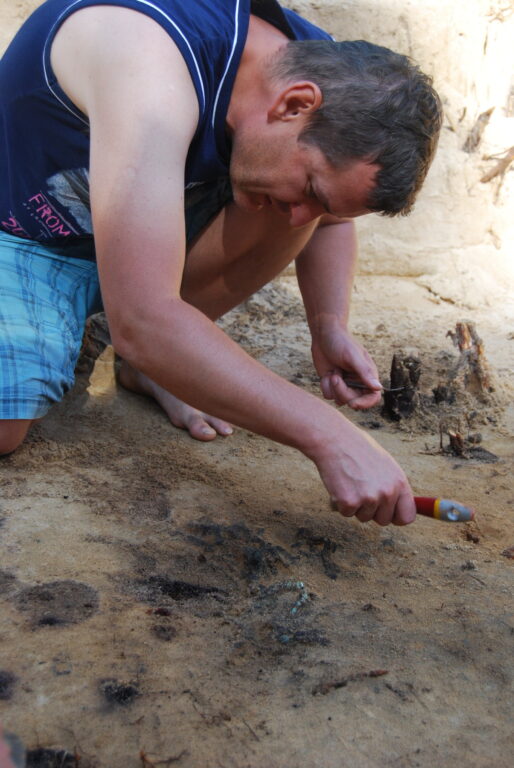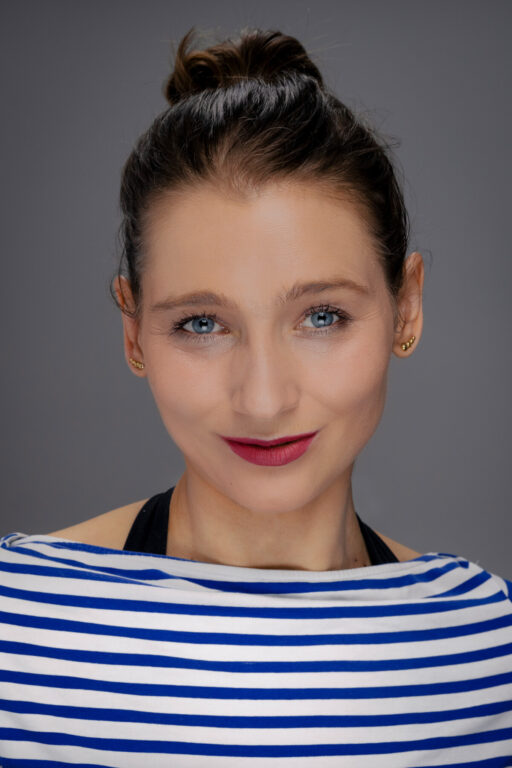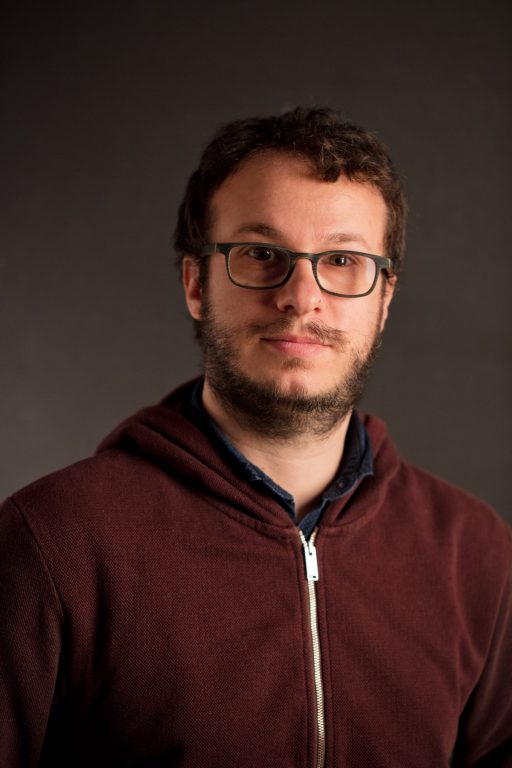
dr hab. Claudio Berto, prof. ucz.
Katedra Archeologii Epoki Kamienia
Laboratorium Archeologicznych Analiz Specjalistycznych
e-mail:
c.berto@uw.edu.pl
phone number:
+48 22 55 22 842
duty hours:
Thursday 11.30–13.30, room 2.15
research interests:
– Microvertebrate Paleontology
– Biochronology
– Quaternary Mammals
– Pleistocene palaeoecology
– Paleoclimate reconstructions
– Environmental reconstructions in Palaeolithic sites
bibliography:
Publications in indexed scientific journals
Berto C., Szymanek M., Blain H.-A., Pereswiet-Soltan, A., Krajcarz, M., Kot, M., 2021. Small vertebrate and mollusc community response to the latest Pleistocene-Holocene environment and climate changes in the Kraków-Częstochowa Upland (Poland, Central Europe). Quaternary International. https://doi.org/10.1016/j.quaint.2021.09.010
Kot, M., Gryczewska, N., Szymanek, M., Moskal del-Hoyo, M., Szeliga, M., Berto, C., Wojenka, M., Krajcarz, M., Krajcarz, M.T., Wertz, K., Fedorowicz, S., Jaskulska, E., Pilcicka-Ciura, H., 2021. Bramka Rockshelter: An Early Mesolithic cave site in Polish Jura. Quaternary International. https://doi.org/10.1016/j.quaint.2021.08.015
Berto, C., Krajcarz, M.T., Moskal-del Hoyo, M., Komar, M., Sinet-Mathiot, V., Zarzecka-Szubińska, K., Krajcarz, M., Szymanek, M., Wertz, K., Marciszak, A., Mętrak, M., Suska-Malawska, M., Wilcke, A., Kot, M., 2021. Environment changes during Middle to Upper Palaeolithic transition in southern Poland (Central Europe). A multiproxy approach for the MIS 3 sequence of Koziarnia Cave (Kraków-Częstochowa Upland). [accepted manuscript]. J. Archaeol. Sci. Reports 35. https://doi.org/10.1016/j.jasrep.2020.102723
López-García, J.M., Cuenca-Bescós, G., Galindo-Pellicena, M.Á., Luzi, E., Berto, C., Lebreton, L., Desclaux, E., 2021. Rodents as indicators of the climatic conditions during the Middle Pleistocene in the southwestern Mediterranean region: implications for the environment in which hominins lived. J. Hum. Evol. 150, 102911. https://doi.org/10.1016/j.jhevol.2020.102911
Berto, C., Nadachowski, A., Pereswiet-Soltan, A., Lemanik, A., Kot, M. , 2020. The Middle Pleistocene small mammals from the lower layers of Tunel Wielki Cave (Kraków-Częstochowa Upland): An Early Toringian assemblage in Poland. Quaternary International, in press. https://doi.org/10.1016/j.quaint.2020.10.023
Moncel, M.H., Santagata, C., Pereira, A., Nomade, S., Voinchet, P., Bahain, J.J., Daujeard, C., Curci, A., Lemorini, C., Hardy, B., Eramo, G., Berto, C., Raynal, J.P., Arzarello, M., Mecozzi, B., Iannucci, A., Sardella, R., 2020. The origin of early Acheulean expansion in Europe 700 ka ago : new findings at Notarchirico ( Italy ). Sci. Rep. 1–16. https://doi.org/10.1038/s41598-020-68617-8
Baca, M., Popović, D., Baca, K., Lemanik, A., Doan, K., Horáček, I., López-García, J.M., Bañuls-Cardona, S., Pazonyi, P., Desclaux, E., Crégut-Bonnoure, E., Berto, C., Lenardić, J.M., Miękina, B., Murelaga, X., Cuenca-Bescós, G., Krajcarz, M., Marković, Z., Petculescu, A., Wilczyński, J., Knul, M.V., Stewart, J.R., Nadachowski, A., 2020. Diverse responses of common vole (Microtus arvalis) populations to Late Glacial and Early Holocene climate changes – Evidence from ancient DNA. Quat. Sci. Rev. 233, 106239. https://doi.org/10.1016/j.quascirev.2020.106239
Berto, C., López-García, J.M., Luzi, E., 2019. Changes in the Late Pleistocene small-mammal distribution in the Italian Peninsula. Quat. Sci. Rev. 225, 106019. https://doi.org/10.1016/j.quascirev.2019.106019
Berto, C., Santaniello, F., Grimaldi, S., 2019. Palaeoenvironment and palaeoclimate in the western Liguria region (northwestern Italy) during the Last Glacial. The small mammal sequence of Riparo Mochi (Balzi Rossi, Ventimiglia). Comptes Rendus Palevol 18, 13–23. https://doi.org/10.1016/j.crpv.2018.04.007
Cheli Cheheb, R.C., Arzarello, M., Arnaud, J., Berto, C., Cáceres, I., Caracausi, S., Colopi, F., Daffara, S., Canini, G.M., Huguet, R., Karambatsou, T., Sala, B., Zambaldi, M., Berruti, G.L.F., 2019. Human behavior and Homo-mammal interactions at the first European peopling: new evidence from the Pirro Nord site (Apricena, Southern Italy). Sci. Nat. 106, 16. https://doi.org/10.1007/s00114-019-1610-4
Kot, M., Gryczewska, N., Berto, C., Wojenka, M., Szeliga, M., Jaskulska, E., Fetner, R., Krajcarz, M., Wertz, K., Zarzecka-Szubińska, K., Krajcarz, M.T., Moskal-del Hoyo, M., Leloch, M., Jakubczak, M., 2019. Thirteen cave sites: settlement patterns in Sąspów Valley, Polish Jura. Antiquity 93, e30. https://doi.org/10.15184/aqy.2019.155
López-García, J.M., Berto, C., Peresani, M., 2019. Environmental and climatic context of the hominin occurrence in northeastern Italy from the late Middle to Late Pleistocene inferred from small-mammal assemblages. Quat. Sci. Rev. 216, 18–33. https://doi.org/10.1016/j.quascirev.2019.05.025
Moroni, A., Boschian, G., Crezzini, J., Montanari-Canini, G., Marciani, G., Capecchi, G., Arrighi, S., Aureli, D., Berto, C., Freguglia, M., Araujo, A., Scaramucci, S., Hublin, J.J., Lauer, T., Benazzi, S., Parenti, F., Bonato, M., Ricci, S., Talamo, S., Segre, A.G., Boschin, F., Spagnolo, V., 2019. Late Neandertals in central Italy. High-resolution chronicles from Grotta dei Santi (Monte Argentario – Tuscany). Quat. Sci. Rev. 217, 130–151. https://doi.org/10.1016/j.quascirev.2018.11.021
Berto, C., Luzi, E., Canini, G.M., Guerreschi, A., Fontana, F., 2018. Climate and landscape in Italy during Late Epigravettian. The Late Glacial small mammal sequence of Riparo Tagliente (Stallavena di Grezzana, Verona, Italy). Quat. Sci. Rev. 184, 132–142. https://doi.org/10.1016/j.quascirev.2017.07.022
Boschin, F., Boscato, P., Berto, C., Crezzini, J., Ronchitelli, A., 2018. The palaeoecological meaning of macromammal remains from archaeological sites exemplified by the case study of Grotta Paglicci (Upper Palaeolithic, southern Italy). Quat. Res. 90, 470–482. https://doi.org/10.1017/qua.2018.59
Berto, C., Boscato, P., Boschin, F., Luzi, E., Ronchitelli, A., 2017. Paleoenvironmental and paleoclimatic context during the Upper Palaeolithic (late Upper Pleistocene) in the Italian Peninsula. The small mammal record from Grotta Paglicci (Rignano Garganico, Foggia, Southern Italy). Quat. Sci. Rev. 168, 30–41. https://doi.org/10.1016/j.quascirev.2017.05.004
Arnaud, J., Peretto, C., Panetta, D., Tripodi, M., Fontana, F., Arzarello, M., Thun Hohenstein, U., Berto, C., Sala, B., Oxilia, G., Salvadori, P.A., Benazzi, S., 2016. A reexamination of the Middle Paleolithic human remains from Riparo Tagliente, Italy. Quat. Int. 425, 437–444. https://doi.org/10.1016/j.quaint.2016.09.009
Berto, C., Bertè, D., Luzi, E., López-García, J.M., Pereswiet-Soltan, A., Arzarello, M., 2016. Small and large mammals from the Ciota Ciara cave (Borgosesia, Vercelli, Italy): An Isotope Stage 5 assemblage. Comptes Rendus Palevol 15, 669–680. https://doi.org/10.1016/j.crpv.2015.05.014
Blain, H.-A., Delfino, M., Berto, C., Arzarello, M., 2016. First record of Pelobates syriacus (Anura, Amphibia) in the early Pleistocene of Italy. Palaeobiodiversity and Palaeoenvironments 96, 111–124. https://doi.org/10.1007/s12549-015-0220-1
López-García, J.M.J.M., Luzi, E., Berto, C., Peretto, C., Arzarello, M., 2015. Chronological context of the first hominin occurrence in southern Europe: the Allophaiomys ruffoi (Arvicolinae, Rodentia, Mammalia) from Pirro 13 (Pirro Nord, Apulia, southwestern Italy). Quat. Sci. Rev. 107, 260–266. https://doi.org/10.1016/j.quascirev.2014.10.029
López-García, J.M., Berto, C., Luzi, E., Dalla Valle, C., Bañuls-Cardona, S., Sala, B., 2015. The genus Iberomys (Chaline, 1972) (Rodentia, Arvicolinae, Mammalia) in the Pleistocene of Italy. Ital. J. Geosci. 134, 162–169. https://doi.org/10.3301/IJG.2014.48
Peretto, C., Arnaud, J., Moggi-Cecchi, J., Nomade, S., Pereira, A., Falguères, C., Bahain, J.-J., Grimaud-Hervé, D., Berto, C., Sala, B., Lembo, G., Muttillo, B., Gallotti, R., Thun Hohenstein, U., Vaccaro, C., Coltorti, M., Arzarello, M., 2015. A Human Deciduous Tooth and New 40Ar / 39Ar Dating Results from the Middle Pleistocene Archaeological Site of Isernia La Pineta, Southern Italy. PLoS One 10, 1–19. https://doi.org/10.1371/journal.pone.0140091
López-García, J. M., Berto, C., Colamussi, V., Dalla Valle, C., Lo Vetro, D., Luzi, E., Malavasi, G., Martini, F., Sala, B., 2014. Palaeoenvironmental and palaeoclimatic reconstruction of the latest Pleistocene–Holocene sequence from Grotta del Romito (Calabria, southern Italy) using the small-mammal assemblages. Palaeogeography, Palaeoclimatology, Palaeoecology, 409, 169–179. https://doi.org/10.1016/j.palaeo.2014.05.017
Berto, C., Rubinato, G., 2013. The upper Pleistocene mammal record from Caverna degli Orsi (San Dorligo della Valle – Dolina, Trieste, Italy): A faunal complex between eastern and western Europe. Quat. Int. 284, 1–8. https://doi.org/10.1016/j.quaint.2011.07.025
Arzarello, M., Daffara, S., Berruti, G., Berruto, G., Berté, D., Berto, C., Gambari, F.M., Peretto, C., 2012. The Mousterian Settlement in the Ciota Ciara Cave: the oldest evidence of Homo neanderthalensis in Piedmont (Northern Italy). J. Biol. Res. – Boll. della Soc. Ital. di Biol. Sper. 85, 71–75. https://doi.org/10.4081/jbr.2012.4068
Publications in other scientific journals
Paronuzzi, P., Berto, C., Ghezzo, E., Hohenstein, U.T., Massarenti, A., Reggiani, P., 2018. Nota preliminare sulla sequenza UMG di ex Cava a Filo (Croara, BO): gli aspetti stratigrafico-sedimentari, paleontologici e antropici alla luce delle ultime indagini (2006-2016). Mem. dell’Istituto Ital. di Speleol. II, 131–144.
Berto, C., Luzi, E., Guerreschi, A., Fontana, F., Valletta, F., 2016. Small mammals from Mondeval de Sora (San Vito di Cadore, Belluno): paleoenvironmental differences between early and late Holocene. Preist. Alp. 48, 69–72.
Angelucci, D. E., Arnaud, J., Arzarello, M., Berruti, G. Berruto, G., Berté, D. Berto, C., Buccheri, F., Casini, A., Daffara, S., Luzi, E., López-García, J. M., 2015. Borgosesia, Monte Fenera. L’occupazione musteriana della grotta della Ciota Ciara, nuovi dati dalla campagna di scavo 2014. Quaderni Della Soprintendenza Archeologica Del Piemonte, 400-402.
Daffara, S., Arzarello, M., Berruti, G., Berruto, G., Bertè, D., Berto, C., Casini, A., 2014. The Mousterian lithic assemblage of the Ciota Ciara cave (Piedmont, Northern Italy): exploitation and conditioning of raw materials. Journal of Lithic Studies, 1, 2, 1-16. https://doi.org/10.2218/jls.v1i2.xxx
Arnaud, J., Arzarello, M., Berruti, G., Berruto, G., Bertè, D., Berto, C., Buccheri, F., Daffara, S., Luzi, E., López-García, J. M., Peretto, C., 2014. Borgosesia, Monte Fenera. Grotta della Ciota Ciara. Quaderni Della Soprintendenza Archeologica Del Piemonte, 29, 204–206.
Arzarello, M., Daffara, S., Berruti, G., Berruto, G., Bertè, D., Berto, C., Peretto, C., 2013. Borgosesia, Monte Fenera. L’occupazione musteriana della grotta della Ciota Ciara. Quaderni della Soprintendenza Archeologica del Piemonte, 27, 331-336.
List of published chapters in scientific monographs
Berto, C., 2020. I piccoli mammiferi (Strati N-F). In: Martini, F., Sarti, L. (Eds.), Il Musteriano Di Grotta Del Cavallo Nel Salento (Scavi 1986-2005). Culture e Ambienti. Museo e Istituto Fiorentino di Preistoria “Paolo Graziosi,” Firenze, pp. 75–83.
Sala, B., Berto, C., 2020. I grandi mammiferi (Strati F-N). In: Martini, F., Sarti, L. (Eds.), Il Musteriano Di Grotta Del Cavallo Nel Salento (Scavi 1986-2005). Culture e Ambienti. Museo e Istituto Fiorentino di Preistoria “Paolo Graziosi,” Firenze, pp. 65–74.
Berto, C., 2019. La microfauna, in: Steffè, G., Degasperi, N. (Eds.), Il Villaggio Neolitico Di Lugo Di Romagna Fornace Gattelli. Strutture, Ambiente, Culture. Istituto Italiano di Preistoria e Protostoria, Firenze, pp. 361–363.
Berto, C., Bon, M., Zampieri, S., 2012. I reperti faunistici provenienti dal sito del Neolitico recente di Botteghino (Parma), in: Atti Del 6° Convegno Nazionale Di Archeozoologia (Orecchiella, 2009). pp. 183–185.
Bon, M., Zampieri, S., Rocco, G., Berto, C., 2012. Analisi archeozoologica degli insediamenti tardomedievali e moderni di San Giacomo in Paludo (VE), in: Atti Del 6° Convegno Nazionale Di Archeozoologia (Orecchiella, 2009). pp. 351–354.
projects:
As Principal Investigator
2021-2025
OPUS20: 2020/39/B/HS3/00932. A palaeoecological approach to archaeological sites: The landscape of the human occupation between the late Middle Palaeolithic and Upper Palaeolithic in southern Poland
2021
Miniatura 4: 2020/04/X/ST10/01659. Environment and climate reconstruction in Central Italy between Late Pleistocene and early Holocene. Testing direct radiometric dating method on the small mammal bones from Grotta della Ferrovia
2020
IDUB: 501-D115-20-0004316. Climate and environment during the final Pleistocene to Early Holocene transition. Chronological framework of three archaeological cave sites in the Sąspów Valley
As Participant
2019-2021
Sonata BIS: 2016/22/E/HS3/00486. Settlement of the Sąspów Valley from Palaeolithic up to Modern times- elaboration of the unpublished fieldwork results of prof. Waldemar Chmielewski. Principal Investigator: Dr. Małgorzata Kot
2015 – today: From the Gravettian to the Epigravettian in Southern Italy. Changes in behaviour, technological know-how and symbolism at the cave sites of Paglicci (Rignano Garganico, Apulia) and La Cala (Camerota, Campania). Project founded by several Italian institutions such as MIUR (Italian Ministry for University and Research) and local communities. I am responsible for the small mammal collections study. Principal investigator: Dr. Adriana Moroni (University of Siena).
2015 – 2016 and 2019 – today: Early Evidence of Acheulean bifacial technology in Europe. Project founded by the Leakey Foundation. I am the responsible for the small mammal study of Notarchirico (Middle Pleistocene). Principal investigator: Prof. Marie-Hélène Moncel (MNHN – Paris).
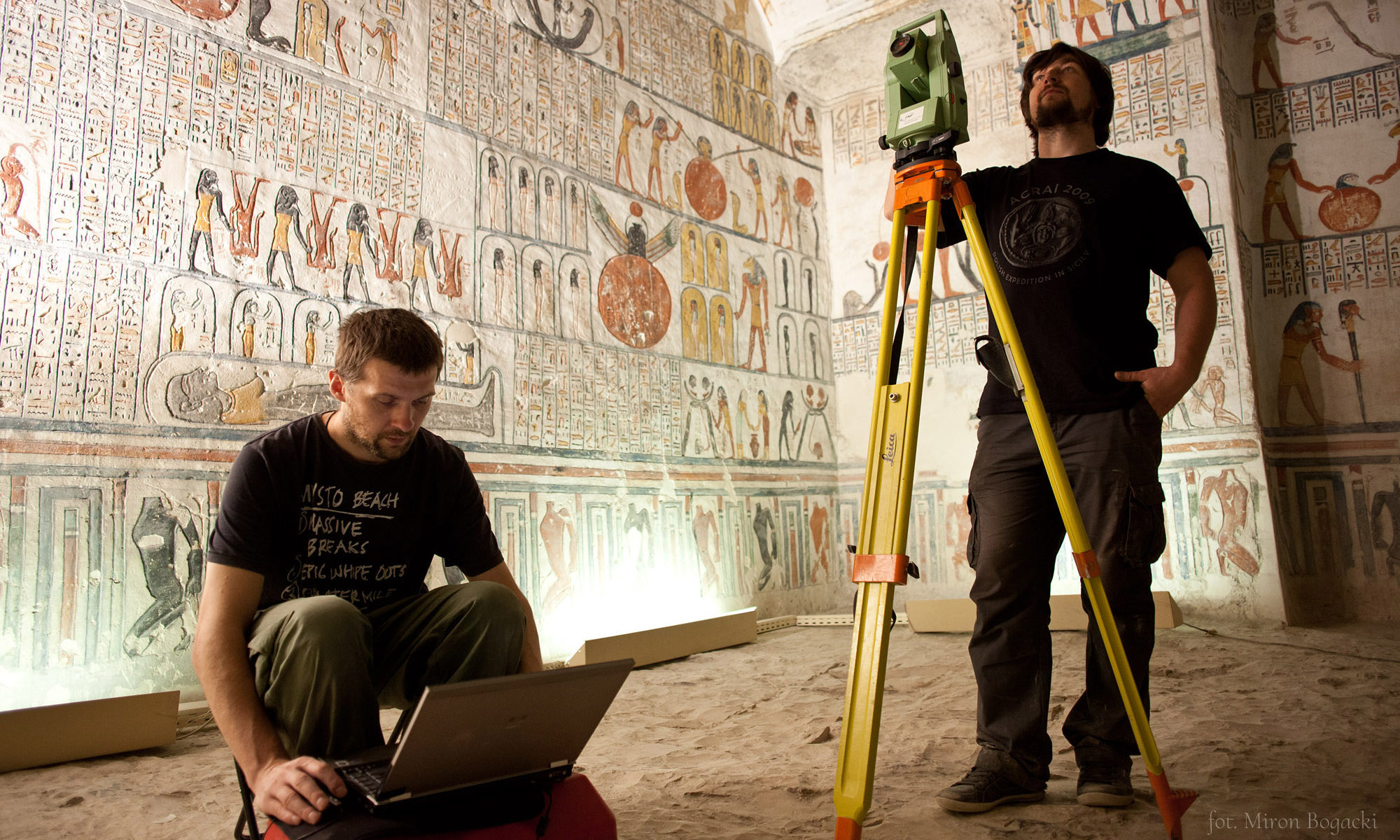


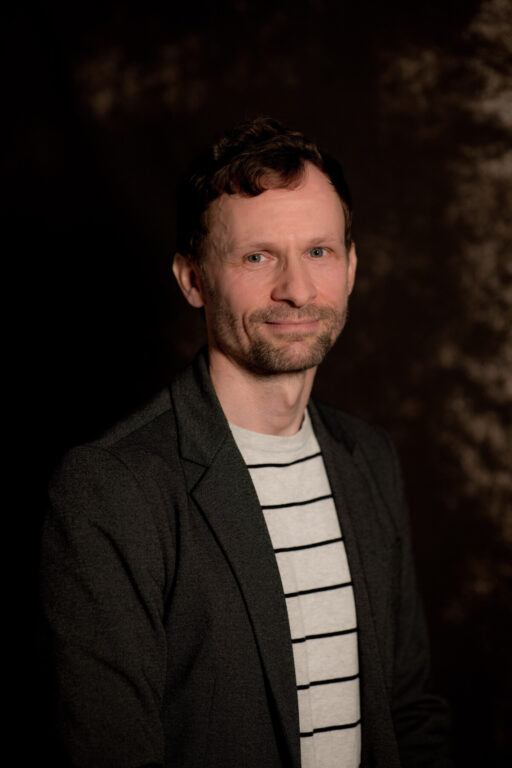
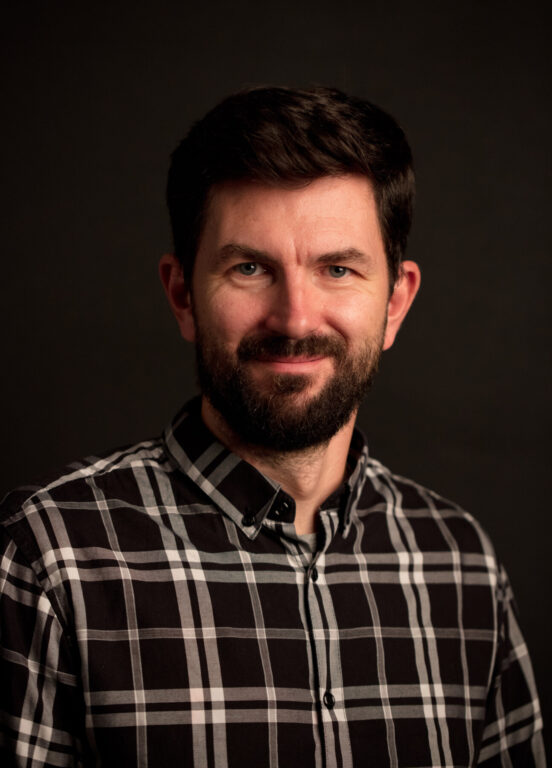
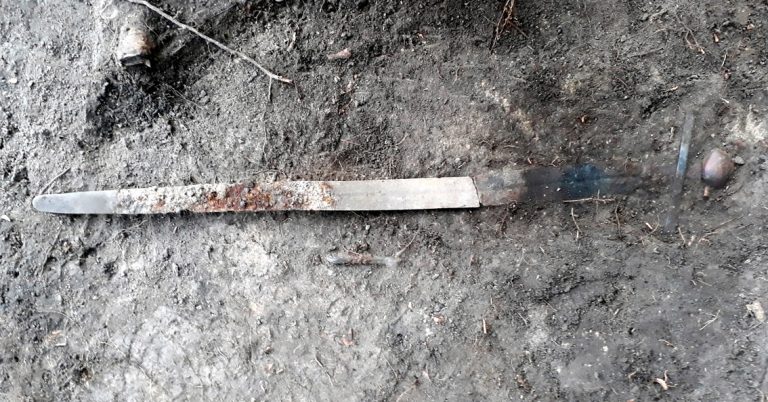
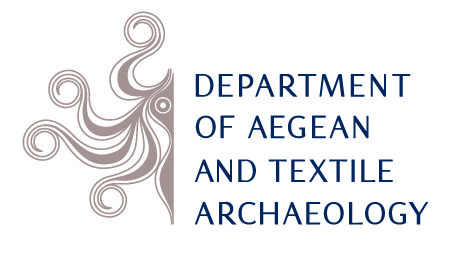 a
a
